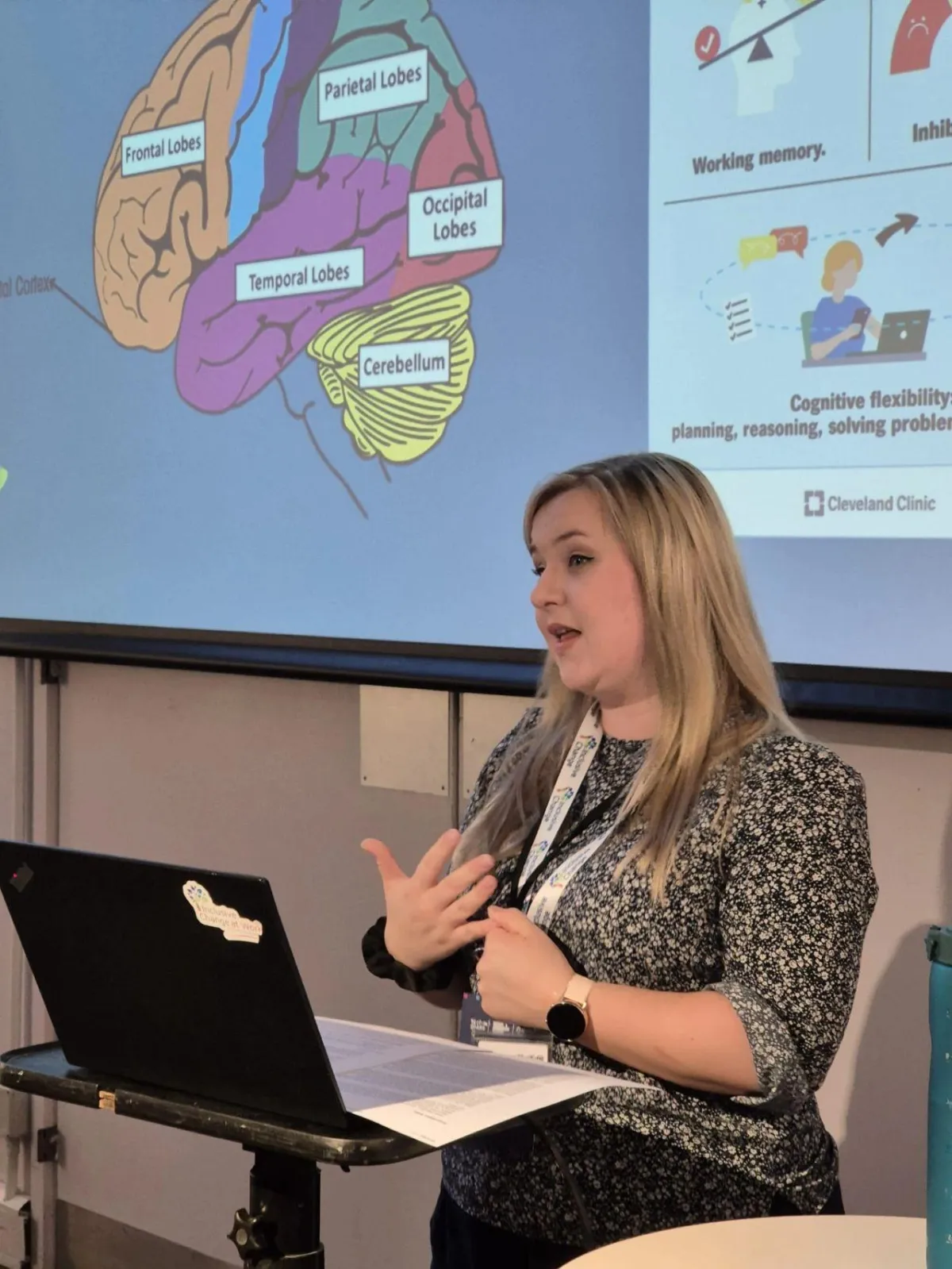
Becca Burke
ADHD Speaker & Coach
Becca Burke is an ADHD and neurodiversity speaker who helps organisations understand, support and retain neurodivergent talent. Drawing on both lived experience and professional insight, she delivers talks and workshops that inspire inclusive leadership, meaningful change and recognition of neurodiversity as a source of innovation and strength. Her style is honest, engaging and packed with practical insight, helping audiences see how neurodivergent thinking can improve wellbeing, performance and belonging.
Hi, I am Becca!
I am Becca, a passionate advocate for neurodiversity and understanding ADHD in the workplace. Living with ADHD (combined presentation) myself, I bring a unique blend of professional experiences and personal insights to the conversation about creating inclusive, productive work environments. Equity in the workplace is especially important for us as neurodiverse folk; if given the adjustments and support we need, we can not only survive, but thrive at work.

My professional journey
My career path has been varied, in true ADHD style! From my early days in customer relations to roles in sales and account management, I've always excelled in building relationships and understanding people's needs. My time at a FTSE 100 bank gave me a solid foundation for navigating large organisations and the politics of the office environment, and I then had to adapt quickly to the drastic changes of the Covid-19 Pandemic Lockdown. It was during this time, recognising the disruption to my routine, hyperfocusing on work outside of my core hours, and my inability to finish any tasks to completion, that I realised something wasn’t working for my brain.
Throughout my career, I’ve recognised that I was struggling, but never quite understood why. I saw so much of my own journey in the struggles I heard from other neurodiverse people, and I wanted to find a way that I could tangibly make a difference. After my own diagnosis in early 2024, I was inspired to become an ADHD Coach and led to me being headhunted for Inclusive Change Ltd as Support Specialist.
Neurodiversity Strategy for Organisations
- ADHD awareness and management strategies
- Job coaching neurodivergent clients at work
- Rejection Sensitive Dysphoria (RSD) awareness training
- Neurodivergent talent recruitment and retention
- Training HR and leadership teams in neurodiversity best practice
Living with ADHD
- Physiological difference in the brain
- ADHD facts and figures
- Common misconceptions
- Lived experience
- Understanding and empathy
- ADHD Works Level 1 Coach
ADHD in the Workplace
- Common challenges and barriers in the workplace
- Strengths ADHD can bring to the workplace
- Helpful strategies and tools
- Reasonable Adjustments
- Equality Act 2010 protection
My Speaking Style
I pride myself on being engaging, insightful, and empathetic. My presentations blend personal anecdotes, research-based strategies, and interactive elements that leave audiences both informed and inspired. I like making complex topics accessible, and providing concrete, implementable solutions to common workplace challenges.
Why Choose Me?
At Inclusive Change, we understand your ‘Why,’ and meet you where you are on your journey as a business. Whether you're looking to educate your HR or leadership teams, or provide valuable insights to your entire organisation, I can help. I don’t believe that we as neurodivergent people need to change who we are to succeed; with the right support, education and awareness, we can be ourselves without compromise.
Work with me
Want to improve how your organisation understands ADHD and neurodiversity in the workplace?
Book a quick slot with me for a free exploratory call to see how I can help your organisation and explore practical strategies for a more inclusive organisation.
Schedule a time using my calendar below.
What types of events does Becca speak at?
Becca speaks at conferences, corporate events, training days and team development sessions. She also works with schools, charities and public sector organisations that want to understand ADHD and neurodiversity in practical, meaningful ways.

How long are her talks or workshops?
Keynote talks usually run for 30 minutes, with time for questions and discussion. Workshops can be tailored from 60 to 90 minutes to half-day or full-day sessions depending on your team’s goals and the level of interaction you’d like.

Can sessions be delivered online?
Yes. All talks and workshops can be delivered in person or online. Becca regularly works with teams across the UK and internationally through virtual platforms, making her sessions flexible and accessible wherever you are.

How can we book Becca?
You can book Becca directly through the calendar on this page or by contacting the Inclusive Change team. Once you share a few details about your event, we’ll arrange a short call to discuss your needs and confirm the best format for your audience.

Some of the Companies Inclusive Change Have Worked With So Far


Column Header
Lorem ipsum dolor sit amet consecetuer lorem ipsum
Organically grow the holistic world view of disruptive innovation
At the end of the day, going forward, a new normal that has evolved
Column Header
Lorem ipsum dolor sit amet consecetuer lorem ipsum
Organically grow the holistic world view of disruptive innovation
At the end of the day, going forward, a new normal that has evolved
Column Header
Lorem ipsum dolor sit amet consecetuer lorem ipsum
Organically grow the holistic world view of disruptive innovation
At the end of the day, going forward, a new normal that has evolved
Inclusive Change Ltd
The Brightwell, Bradbury House
Wheatfield Drive
Bradley Stoke, Bristol
BS329DB
Copyright 2025 - Inclusive Change Ltd
Companies House: 12412464
VAT NO: 352 1564 17
ICO Reg: ZB081779
UK Register of Learning Providers: 10090652
